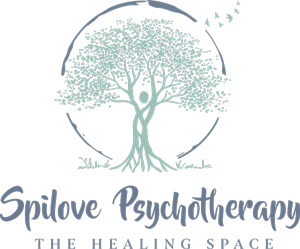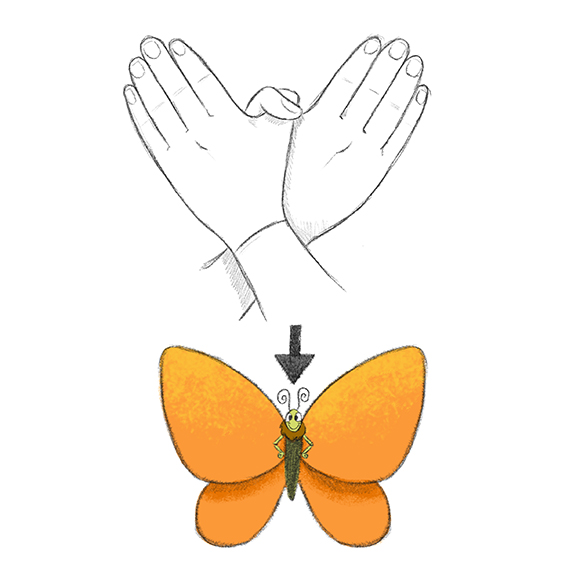Lucky us! Scott Giacomucci, MSS, LSW, CTTS, CET III, trauma specialist, psychodramatist and all around amazing therapist has shared his insights and explained that complicated title: Eye-Movement Desensitization and Reprocessing, also known as EMDR. The following is a handout Scott put together for his clients to help explain what EMDR is and how it's done:
EMDR: Eye-Movement Desensitization and Reprocessing
Often, when something traumatic happens, it seems to get locked in the nervous system with the original picture, sounds, thoughts, feelings, etc. Since the experience is locked there, it continues to be triggered whenever a reminder comes up. It can be the basis for a lot of discomfort and sometimes a lot of negative emotions, such as fear and helplessness that we can’t seem to control. These are really the emotions connected with the old experience that are being triggered.
What is EMDR?
Eye Movement Desensitization and Reprocessing, is a late-stage, trauma resolution method. Developed in the late 1980's, EMDR currently has more scientific research as a treatment for trauma than any other non-pharmaceutical intervention. Based on empirical evidence as well as thousands of client and clinician testimonials, EMDR has proven an efficacious and rapid method of reprocessing traumatic material.
EMDR appears to assist in processing of traumatic information, resulting in enhanced integration - and a more adaptive perspective of the traumatic material. The utilization of EMDR has been shown to be effective with a variety of conditions including generalized and specific anxieties, panic attacks, PTSD symptoms (such as intrusive thoughts, nightmares, and flashbacks), dissociative disorders, mood disorders and other traumatic experiences. Theoretically, EMDR is about integration - bilateral hemispheric (right/left brain) integration; triune brain (brain stem, limbic system and cerebral cortex) integration; and mind/body integration, but practically, it’s about convincing the mind and body that the traumatic event is, indeed over. EMDR helps to put the past in the past, where it belongs, instead of staying stuck in it (feeling like it is happened all over again in the present-with the same thoughts, emotions and body sensations- that accompanied the event in the past).
The eye movements (or other bilateral stimulation) we use in EMDR seem to unlock the nervous system and allow your brain to process the experience. That may be what is happening in REM, or dream, sleep: The eye movements may be involved in processing the unconscious material. The important thing to remember is that it is your own brain that will be doing the healing and you are the one in charge.
How is EMDR Done? (Parnell, 2006)
- Establishment of Safety and Resources - Safety within the therapeutic relationship and safety within each individual EMDR session. During each EMDR session, your therapist will begin by activating your own internal resources. (S)he will guide you in an imaginal, multisensory imagery exercise designed to activate images, emotions and body sensations of safety, protection, nurture and comfort. Once these images have been activated, the actual trauma reprocessing will begin.
- Activating the Traumatic Memory Network - The therapist will ask a series of questions regarding the traumatic memory. The purpose of these questions (or script) is to activate the entire traumatic memory network.
- Adding Alternating Bilateral Stimulation - Once the entire traumatic memory is activated, the therapist will add alternating bilateral stimulation using:
a) buzzing in your hands by turning on the Theratapper
b) alternating auditory tones via headphones or ear buds
c) moving his/her hands back and forth, so you may visually track the movement
- Reestablishment of Safety - regardless of whether the traumatic material was completely processed or not, the session will end at a pre-set time. Before you leave, you will be stable, embodied, oriented and calm. Depending on you and your therapist’s preferences, this may be accomplished in a variety of ways including, but not limited to re-activating your own internal resources, breathing exercises, prolonged muscle relaxation, etc.
Looking to continue EMDR therapy?
-You might begin by asking your IOP/PHP counselor for a recommended outpatient counselor who is skilled in EMDR.
-At the EMDR International Association website (EMDRIA.org) you can navigate to the “Find a Therapist” tab and search for a certified EMDR therapist in your community.
The current treatment guidelines of the American Psychiatric Association and the International Society for Traumatic Stress Studies designate EMDR as an effective treatment for post traumatic stress. EMDR was also found effective by the U.S. Department of Veterans Affairs and Department of Defense, the United Kingdom Department of Health, the Israeli National Council for Mental Health, and many other international health and governmental agencies.
(Giacomucci 2017)(References: EMDRIA; Linda Curran; Laurel Parnell)
Scott Giacomucci, MSS, LSW, CTTS, CET III is a certified trauma treatment specialist and licensed social worker in Pennsylvania. He is a graduate of Bryn Mawr College where he received his Masters in Social Service (MSS) with a concentration in clinical social work. He facilitates trauma treatment services at Mirmont Treatment Center serving a variety of populations including young adults and emergency responders (veterans, police, fire, etc..) in both individual therapy and group sessions. Scott has a gentle, non-judgmental treatment approach that honors the inherent worth of each individual. He utilizes a blend of treatment modalities including both traditional talk therapy and experiential therapy which have been research-proven as the treatment of choice for treating trauma.
To learn more about Scott Giacomucci and the work he does, you can visit his website at: http://sgiacomucci.com/
Any comments or questions? We'd love to hear from you! Please comment below. For confidential questions, email TiffanySpilove@yahoo.com. If you need help finding an EMDR therapist, please call 610-314-8402, I'd be happy to help.



















